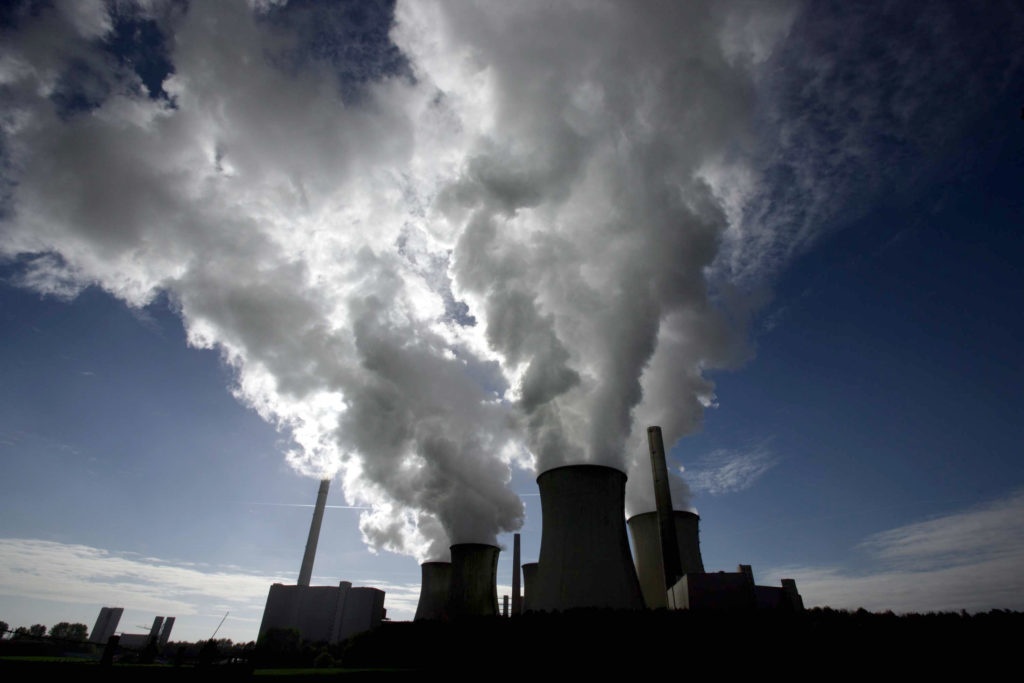
Natural ways of reducing carbon emissions to zero including restoring native woodlands are better than “science fiction” climate schemes such as mirrors in space, a charity has urged.
Restoring habitats by reintroducing beavers to river systems to slow water flows and curb flooding or replanting coastal mangroves in tropical countries as storm barriers will also help protect people from the impacts of climate change.
The call from Christian Aid comes after warnings the world must cut carbon emissions to zero by 2050 to meet goals in the Paris climate deal to curb global warming to 1.5C (2.7F) and avoid the worst impacts of rising temperature.
The UK Government has asked its climate advisory committee for advice on setting a net-zero target for emissions and the European Union has set out plans for “climate neutrality” by 2050.
In a report on net-zero emissions, where any greenhouse gases that are still put into the atmosphere are “offset” by measures such as planting trees or using technology to curb warming, Christian Aid backed natural solutions.
The aid charity said UK efforts to tackle emissions should follow a similar pattern to the waste hierarchy of “reduce, reuse, recycle”.
Firstly, there should be efforts to consume less energy and resources, then more efficiency such as insulating homes or using public transport and finally using more renewables and sustainable materials.
There is a need to minimise emissions from hard-to-tackle sectors such as aviation and meat and dairy production, but there may still be some pollution that will need to be offset through generating negative emissions.
But the report called for solutions which are environmentally and socially sound, including restoring UK habitats and in particular native forests, which would help tackle climate change and reverse declines in British wildlife.
Functioning habitats, for example with beavers reintroduced to build dams and slow the flow of water, will also have the benefit of helping protect people against the impacts the UK is likely to see, such as flooding.
While Christian Aid said it supported research into technology which could take carbon directly from the air, it warned they were likely to be energy-intensive and expensive.
They should not be relied on and many of the methods needed to bring pollution to zero by mid-century already exist, the charity said.
It warned against using methods to try and reflect sunlight away from the Earth, such as putting mirrors in space or interfering with cloud formations to provide more shade, which do not address the central problem of too much greenhouse gas pollution.
Report author Dr Kat Kramer, Christian Aid’s global climate lead, said the move to a net-zero world by 2050 was gaining momentum as people realised the importance of limiting global warming to 1.5C to avoid the worst impacts.
“The search for ways to create ‘carbon sinks’ that generate negative emissions is growing.
“The idea of putting mirrors in space or spraying the atmosphere with reflective aerosols gets attention but these are largely expensive science fiction fantasies.
“What we need is a renewed relationship with nature,” she said.
“Restoring ecosystems, especially peatlands and native forests, has the potential to create significant benefits for the climate without using our atmosphere as a school laboratory.”
The UK should cut its emissions to zero domestically, rather than “offsetting” them with action abroad, but it should also help support emissions reductions in developing countries, such as restoring mangroves which can protect against storms and coastal flooding, Christian Aid said.